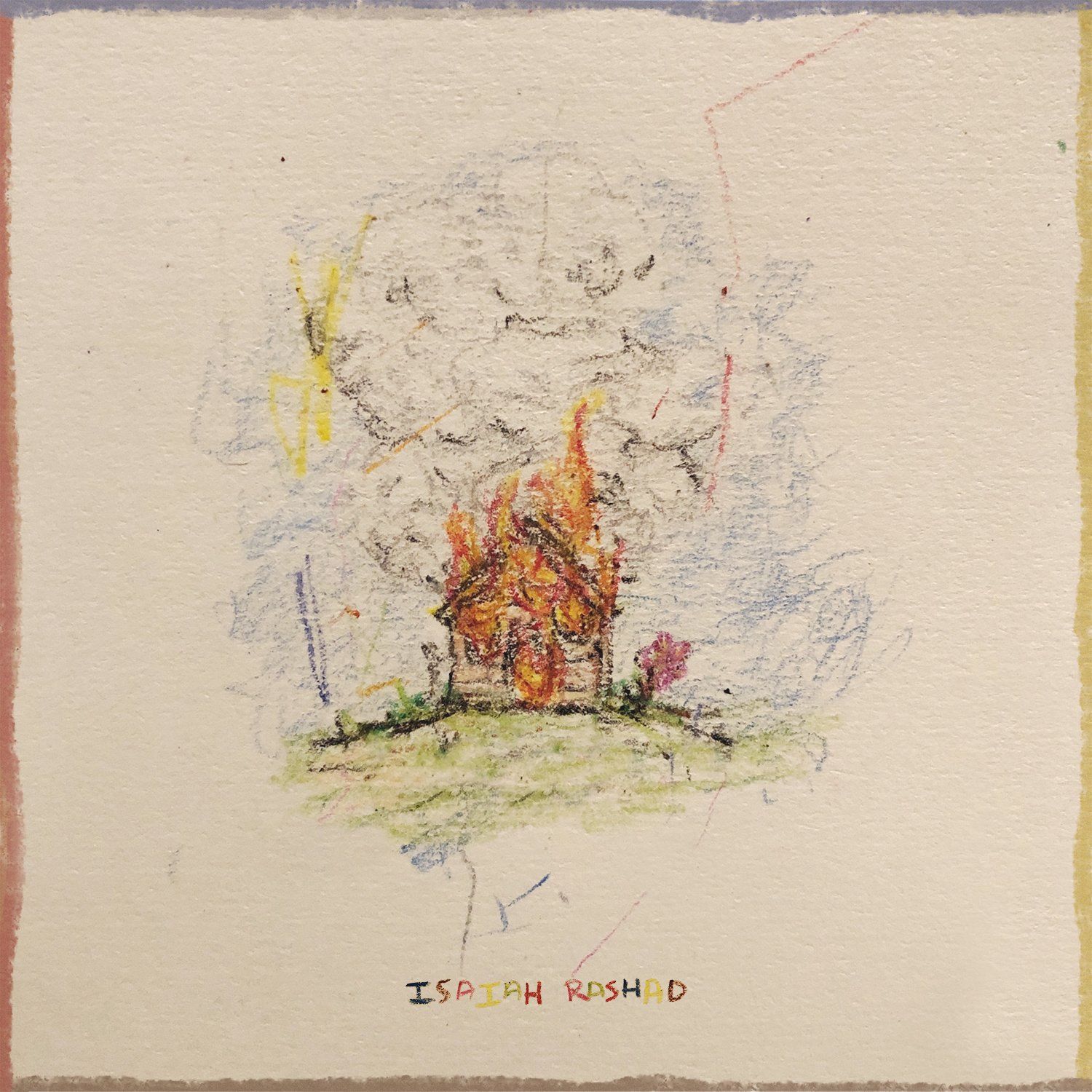If you didn’t know better, one may well think Isaiah Rashad makes a habit of hiatuses. When the release of his acclaimed 2014 tape Cilvia Demo saw him join the hallowed ranks of Top Dawg Entertainment, most saw great things ahead for the rapper. Yet, it’d take him more than two years to drop his proper debut album, The Sun’s Tirade, the time in between finding him burying responsibility in alcohol. The success of that album only exacerbated the problem, with him returning to his hometown and spreading the wealth among his long-term friends until he found himself essentially broke. He ended up being supported only by his mother as he lived in relative poverty, once again washing away reality with ever more alcohol.
It wasn’t until he confessed his problems to TDE leader, and close mentor, Top, that Rashad began to recover. He checked into rehab and began to find the hard earned, if not peace, wizened perspective that dominates his second proper studio album, The House is Burning.
In fact, if anything, the album can feel rather inscrutable at first glance: despite some gleaming, riotous moments, it’s largely disinterested in laying out its intentions for the listener. To the contrary, it’s intricately designed, waiting to be unearthed with each moment spent within its embattled world. All that he’s been through hasn’t left Rashad devastated – at the very least, not outwardly.
Instead, he’s crafted something of a defiant shell, the willful peeling back of which both forms the backbone and represents the bravery of The House is Burning. Never does Rashad give into an easy, ‘woe is me’ attitude. He’s so successfully removed himself from the baser emotions of his situation that, at times, he can feel as much a spectator to the events at hand as the listener, as heard on the distanced ruminations of album highlight “Hey Mista”. The House is Burning is a reflective, nuanced, and ultimately controlled mediation on grief and the perils of life, even something of a hip hop Get Lonely in its gentle sorrow. This is apparent from the first mournful notes of album opener “Darkseid”, not to mention its open-eyed, pained words (“Some n***as gon’ die under the cardboard / some n***as gon’ die in the feds”).
With this sense of sorrow also comes a newfound appreciation for everything: both what Rashad has and, perhaps even more importantly, what’s been denied to him. Even the album’s more colorful, airwave-ready moments are tinged by this gratitude: the hook of lead single “Lay wit Ya” features a repetition of, “Last year you were my bitch / now you’re my baby girl.” In Rashad’s playfully extended drawl it’s just a damn earworm, but peel back this layer just a tad and you’re left with a powerful sentiment: the newfound recognition (not to mention loyalty towards) those few that stand by us in life.
Musically, however, the likes of “Lay wit Ya” and the Lil Uzi Vert boasting “In the Garden” are outliers to the sound of The House if Burning. Generally, Rashad stands by a conviction to maintain a more subdued palette that suits his state of mind. He’s long been deeply influenced by the Southern hip hop of his home and youth, and that sense of grooviness is still present – there are Three 6 Mafia, UGK, and Goodie Mob nods present, naturally, but more than ever the album finds Rashad sliding into a comfortable, layered zone just between rap and overt R&B. The most apparent burst into such territory (while also clear as day on the likes of “Wat U Sed” and “Claymore”) is the Kenny Beats helmed “Score”, which finds our leading man musing alongside TDE labelmate SZA and the ever-reliable (and underrated) 6LACK. Indeed, the album finds a generous rapper more than happy to cede the spotlight to his guests, particularly when recent Memphis-favorite Duke Deuce rampages through. This doesn’t imply any lack of vision, instead, it illuminates an artist so sure of his canvas that he’s able to corral star turns to fit just the way he wants them to.
For example, even when the likes of Jay Worthy and the always dominant Jay Rock appear on “True Story”, the project doesn’t miss a step, with even Rock’s rough bark held at bay by the smooth, Organized Noize-like tap, sticking right to its hues of blue and grey. Therein lies both the power and subtle confidence at play within The House is Burning. It may demand time and focus, but for those interested in a hip hop album that seeks understanding rather than any immediate gratification, this is a quiet, restrained, and uniquely giving world.

